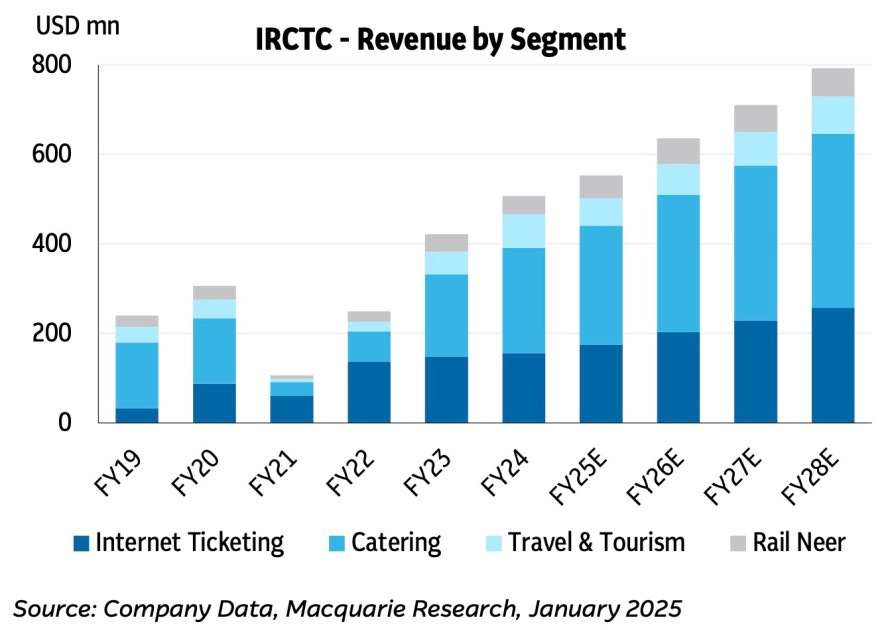IRCTC: Between Monopoly Riches and Price Controls
IRCTC, India's railway ticketing monopoly, presents one of the most fascinating paradoxes in public markets today. As a state-owned enterprise, it lacks basic pricing power - so much so that it's been forced to sell water bottles at the same price for a decade despite surging inflation. Yet IRCTC extracts an 80-85% profit margin from every digital train ticket sold in India.
This state enterprise -- 62.4% owned by the Ministry of Railways -- processes over $4 billion worth of rail bookings annually. About 83% of India's reserved train tickets are booked online, and IRCTC controls 80% of these bookings directly through its platform. When passengers reserve a seat, IRCTC collects Rs15-30 (about 17-34 cents) per ticket in convenience fees.
IRCTC also matches the booking-value margins of MakeMyTrip, India's leading online travel agency, while charging half the commission - 2% versus MakeMyTrip's 4%. Other platforms must route bookings through IRCTC's system and share 30% of their additional service charges on top of IRCTC's base convenience fee.
The monopoly spans beyond ticketing. IRCTC controls catering services on 1,265 trains, operates 305 food plazas, and runs 141 refreshment rooms. Food delivery apps share 15% of order value of food sold via these aggregators. Its 19 water bottling plants run at 74% utilization - yet the Rs15 per liter price hasn't changed since 2012.
The government's grip on this profit engine became clear in 2021 when Indian Railways ordered IRCTC to hand over 50% of its convenience fee revenues. The stock dropped 25% in a day. Though quickly reversed, the order exposed how quickly IRCTC's position could shift at the majority owner's whim.


